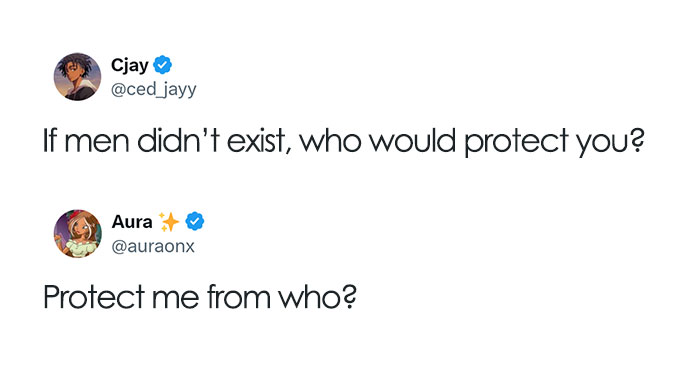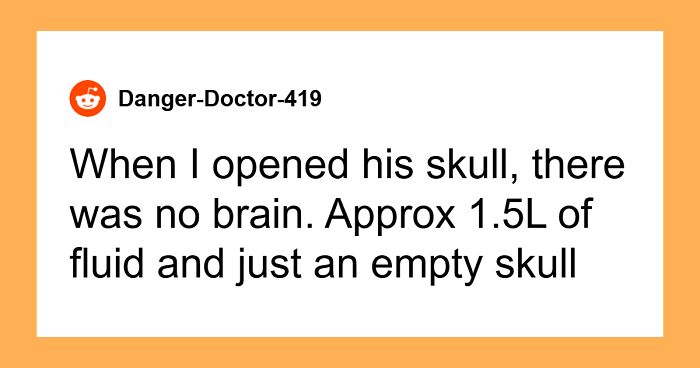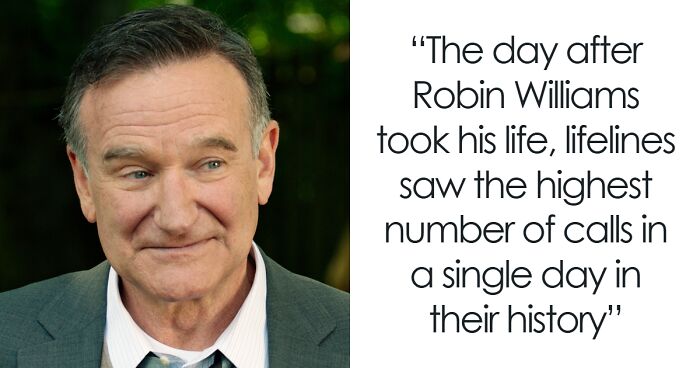Anyone who wants to create a healthy relationship with food knows what a challenge it can be. From scrolling through social media to flipping pages of our favorite magazines, we are constantly exposed to endless information about diet and nutrition. We hear heaps of advice about "good" and "bad" food, including inaccurate maxims we accept without questioning. No wonder navigating the twists and turns of this topic makes our heads spin!
Thankfully, Redditor Rapid_falls263 decided to help us separate facts from fiction and make us feel more confident in our choices. Recently, they reached out to members of 'Ask Reddit' with a question: "Nutritionists, dietitians, and other food experts, what are some food myths most people believe?" Specialists immediately jumped to the comment section to debunk these tales, offer their wisdom, and arm other health-conscious individuals with knowledge.
Below, we wrapped up some of the most common fables from the thread that need to be put to rest. So take out your notebooks, grab your pens, and get ready for some myth-busting responses. Keep reading to also find interviews with Rapid_falls263, and registered and licensed dietitian Kristina Zalnieraite. Then be sure to upvote the replies that surprised you most, and weigh in on the topic in the comments!
This post may include affiliate links.
That meat substitutes are healthier for you (veggie burgers/nuggets, beyond meats, imitation meats & cheese in general)
If you are a vegetarian or vegan for moral reasons I understand and support your decision to consume these products. Some of them can be healthy, but at the end of the day a lot of them are heavily processed products with excess sodium and complex ingredients.
You want a varied, diverse a delicious cuisine to borrow from? Try Mediterranean kitchens. They're less meat-oriented, they have more natural approach to basic foods, there's lots of variety, and generally Med's are less obese and live longer, on average.
Bored Panda managed to get in touch with the person who sparked this conversation on 'Ask Reddit', user Rapid_falls263, who was kind enough to have a little chat with us. The Redditor said they did not expect the thread would attract so much attention: "I'm very surprised. I thought it would go unnoticed like my other questions."
The user believes that for most people, there’s nothing to be worried about as long as they eat a balanced diet and pay attention to calories. "Though how many calories you need depends on things like age, sex, whether you're trying to lose weight, gain weight, or keep your weight the same, etc. However, certain medical conditions require different diets," they mentioned the importance of personalized nutrition.
When asked if there was something that stood out to them in the thread, they immediately mentioned the ignorance some restaurant workers have toward allergies. "People with allergies can't even have food touch the things they're allergic to. I don't know if anyone brought it up, but the same is also true for people with celiac. I worked with people with celiac, and if I was having something with gluten, I had to clean everything really well. I had to be extra careful because even a tiny bit of gluten can send them to the hospital," they said.
 Carbs are not bad for you. Unless medically informed otherwise, your body needs carbs. They are our source of energy and hold essential nutrients the body needs to function properly.
Carbs are not bad for you. Unless medically informed otherwise, your body needs carbs. They are our source of energy and hold essential nutrients the body needs to function properly.
 Drinking a lot of fruit juice is healthy.
Drinking a lot of fruit juice is healthy.
It's not, it contains as much if not more sugar than soda or lemonade, and often it's rid of healthy fibers from the fruits.
So better drink water and EAT 2-3 pieces of fruit per day.
This also depends on what quality the juice is. Freshly pressed orange juice for example is more healthy than some processed thing, that maybe don't even contains any orange.
We also reached out to Kristina Zalnieraite, a registered and licensed dietitian and Head of Nutrition & Wellness at Kilo Health, to learn how to better navigate the seemingly tricky world of nutrition. "With the growing body of knowledge supporting the connection between diet and overall health, many consumers are taking personal health and nutrition decisions into their own hands. People are becoming more reliant on nutrition information from sources such as websites, television, radio, newspapers, advertisements, friends, and family, thereby creating opportunities for nutrition misinformation and health fraud," she told Bored Panda.
According to Zalnieraite, a lot of controversial information surrounds the topic of nutrition. "This is because the information is accessible everywhere, and I have to admit that in quite a lot of cases, it is not always reliable."
 I'm surprised no one mentioned that the food pyramid is unhealthy and a scam by the food companies.
I'm surprised no one mentioned that the food pyramid is unhealthy and a scam by the food companies.
If it were true pizza would be the healthiest food ever. You can put everything on the pyramid onto the pizza at once!
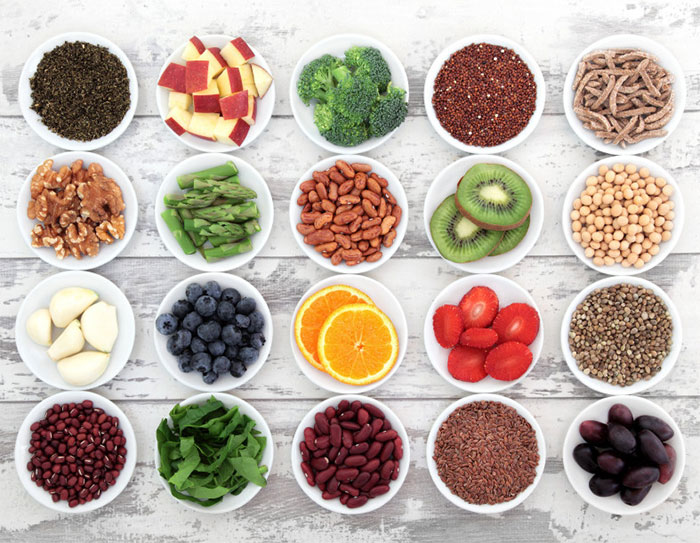 Anything billed as a "superfood" just has a little bit higher levels of some nutrient than other foods. They're not magic and they don't make other, unhealthy foods healthier.
Anything billed as a "superfood" just has a little bit higher levels of some nutrient than other foods. They're not magic and they don't make other, unhealthy foods healthier.
One of the central issues with nutrition is that advice about food is constantly changing, with recommendations appearing from many different sources. "Accurate nutrition information is science-based, peer-reviewed, and replicable. Nutrition misinformation is not supported by science and may be misleading and incomplete. It can be challenging for consumers to tease out reputable versus fraudulent nutrition information and claims," the expert explained.
That fat is the enemy and low-fat foods are good for you.
Low-fat just means there’s generally more sugar in your food which then means an insulin spike, so you actually end up in this constant game of wanting more food or sugar.
I laugh at the gym nuts who push "I only put chicken breast and broccoli in this machine".
There's all kinds of ways to eat healthy without going on some extreme zoo diet.
Variety is key to good nutrition, they might have 2% body fat, but their body is not getting all the various nutrients it needs.
When asked about the widespread food myths that don’t actually serve our physical and mental health, three topics immediately popped into Zalnieraite’s mind. "Consulting more than 30,000 people about nutrition will make you pick up some clues on what foods can confuse a typical health-conscious person. And believe me, I have heard some peculiar things people think are healthy over my career. Some of them are funny. Others might be dangerous."
The first misconception about healthy nutrition, she said, is that foods that contain gluten are bad for you. "You might have heard that gluten-containing foods such as wheat and wheat products are inherently bad for your health. Research shows that there is no need to avoid gluten unless you have a medical reason. Gluten might lead to serious side effects in people who have an autoimmune condition called celiac disease or gluten intolerance. For these people, a gluten-free diet is the most effective medical treatment."
But if you don't have these conditions, you shouldn't restrict yourself from eating gluten, Zalnieraite argued. "Gluten-containing whole grains are rich in fiber and nutrients, including B vitamins, magnesium, and iron, all of which are essential for our optimal health. Choose unprocessed or lightly processed grains because highly processed versions contain refined sugars, higher amounts of saturated fats, and have a higher glycaemic index."
 Myth: "You should wash your Chicken before cooking it".
Myth: "You should wash your Chicken before cooking it".
FACT: Washing raw Chicken in the sink will spread all the bacteria over the surface. Please, don't.
I used to be a registered dietitian. A therapist I was seeing for anxiety about by my health told me eating sugar makes cancer cells clump together. I told her she should look stuff up before she tells ppl stuff like that and dumped her.
So, it's true that some of the molecules that cells use to stay in place in the body have "sugars," meaning carbohydrate parts, on them. But those are not the sugars you eat, and all cells do that. It's also true that cancer cells tend to lose the ability to use oxygen to break down sugars for energy and thus need a lot more sugar than typical cells to grow- this is the basis of PET scans. But none of this adds up to "eating sugar makes cancer cells clump together." Besides, the issue is that cancer cells don't tend to clump together- they metastasize and spread. It would actually be great if there were some sugars that could make cancer cells "clump together" to stop metastasizing.
Another food myth that should be immediately tossed is that sugar in fruit is unhealthy. "Over recent years, the media has portrayed sugar in fruit as the sugar-rich enemy, which led people to avoid consuming too much fruit. While the World Health Organization recommends limiting the intake of added sugars to less than 10% of total energy intake, this advice does not apply to the sugar we get in whole fruit," Zalnieraite told us.
 * No, that gum you swallowed as a kid is not still there. indigestible materials pass through your gut just as fast as anything else. it won't just magically hover there in your intestine as food forces it's way past.
* No, that gum you swallowed as a kid is not still there. indigestible materials pass through your gut just as fast as anything else. it won't just magically hover there in your intestine as food forces it's way past.
* colon cleansing is a complete scam. the colon is a self-cleaning organ.
* Anything that has to do with blood pH is a scam. your body goes through great pains to keep that number exactly where it needs to be, since you'll die if it gets even *one degree* off.
To the first point - gum - for an experiment, eat some corn on the cob, hopefully roasted over fire. Check next morning. Yep. There it all is.
 Fat loss and muscle gain are based on a few simple and obvious principles that anyone can understand pretty easily. Calorie deficits cause fat and muscle loss, and calorie surpluses cause fat and muscle gain. In a deficit eat protein and lift weights to reduce muscle loss, and in a surplus eat protein and lift weights to increase muscle gain.
Fat loss and muscle gain are based on a few simple and obvious principles that anyone can understand pretty easily. Calorie deficits cause fat and muscle loss, and calorie surpluses cause fat and muscle gain. In a deficit eat protein and lift weights to reduce muscle loss, and in a surplus eat protein and lift weights to increase muscle gain.
That’s pretty much it. Choosing certain diets might work better for some people than others because it’s psychologically easier to maintain nutrition goals.
Anything else is just noise created by a fitness industry that absolutely relies on making it seem like there’s more to it than the above. You don’t NEED a pre workout, or to consume whey protein or créatine or any other supplements to make progress. As long as you’re sticking to the above you’re basically doing what you need to do.
You don’t need to optimize your macros. You don’t need to eat x amount of times per day. You don’t need to eat carbs after your workout. You don’t need to do anything else.
The obsession with perfection in workout routines and diets is also pushed by the industry to complicate things. A lot of what is pushed might give you some SLIGHT improvement in results IF you can stick to it but for pretty much anyone that isn’t a performance athlete dedicating their life to diet and exercise it’s more trouble than it’s worth.
Keep it simple. Go to the gym 3 days a week. Watch your calories and eat a decent amount of protein and that’s pretty much it for anyone looking to lose weight or gain muscle.
The licensed dietitian pointed out that manufacturers, cooks, and consumers themselves include free sugar in their food. "That includes sugars naturally present in honey, syrups, and unsweetened fruit juices, too."
"However, the sugar in fruit is naturally bound within its cellular structure, making it act differently in our body than added sugars. Whole fruit is rich in nutrients and fiber and does not spike our blood sugar levels as much as sugary drinks or sweets. Regular fruit consumption has been linked with a lower risk of cardiovascular disease, cancer, and premature death."
"Therefore, everyone should have a few portions of whole fruit per day as part of a balanced diet," Zalnieraite suggested. But there’s one thing to keep in mind. "Fruit juices and smoothies contain free sugars due to the release of the natural sugars from the structure of fruit by blending and juicing. However, they still provide a great variety of vitamins and minerals and some fiber," she said and added it’s best to limit your intake to no more than 150ml of these drinks per day.
That msg is bad for you. All it is is a sodium salt from glutamic acid which is an amino that our body naturally synthesizes and is required by almost all living beings for protein synthesis. It's not harmful at all to you in moderation, just like regular salt. A very small percentage of people show a sensitivity to it but that's with anything. There has been little to no evidence to show that msg is anymore dangerous or bad for you than regular table salt.
Americans were first introduced to MSG through Chinese restaurants in the 60's. While at these eateries people would consume HUGE quantities of cheap starch, carb and fat heavy foods, something that the american palate was not yet accustomed to, and thus began getting headaches, becoming lethargic with some having bouts of nausea and intestinal distress after these huge caloric undertakings. One doctor published a story that quantified this as "Chinese food syndrome" and pegged the cause as MSG. Which caused a panic, and gave MSG a bad reputation that persists to this day. Despite the fact that the same symptoms are shared by most of the country one day a year during a national holiday : Thanksgiving. Msg wasn't the problem, overconsumption (and racism) was the only problem. However, it continues to create a placebo effect in many people who remain wholly ignorant to the fact that MSG is currently put in EVERYTHING. It's a staple of fast and processed food makers.
 I have an advanced diploma in nutrition, it’s not a degree but still. The entire health and fitness industry is based around some guy going “this worked for me so it’s the only way to do it” the fact is if you want to lose weight etc how you do it doesn’t matter in the slightest, it’s as simple as calories in vs calories spent.
I have an advanced diploma in nutrition, it’s not a degree but still. The entire health and fitness industry is based around some guy going “this worked for me so it’s the only way to do it” the fact is if you want to lose weight etc how you do it doesn’t matter in the slightest, it’s as simple as calories in vs calories spent.
And fad diets cannot be sustainable, due to potential long term nutrient deficits, as health issues associated with an unbalanced diet. (Keto is the craziest yet). Eat you veggies, man!
The last food misconception many people believe is that fresh produce is more nutritious than frozen produce. Well, that’s not the case. "Frozen fruit and vegetables can be more nutritious as they are picked and frozen within hours of being harvested, protecting the vitamins and minerals they contain. In contrast, fresh vegetables and fruits begin to lose some nutrients after being picked, packed, stored, and transported to the grocery stores," Zalnieraite detailed.
"A study from 2017 found that frozen produce is either as nutritious or more nutritious than fresh vegetables and fruits. Frozen fruit and vegetables are also more affordable and convenient and can help with reducing food waste."
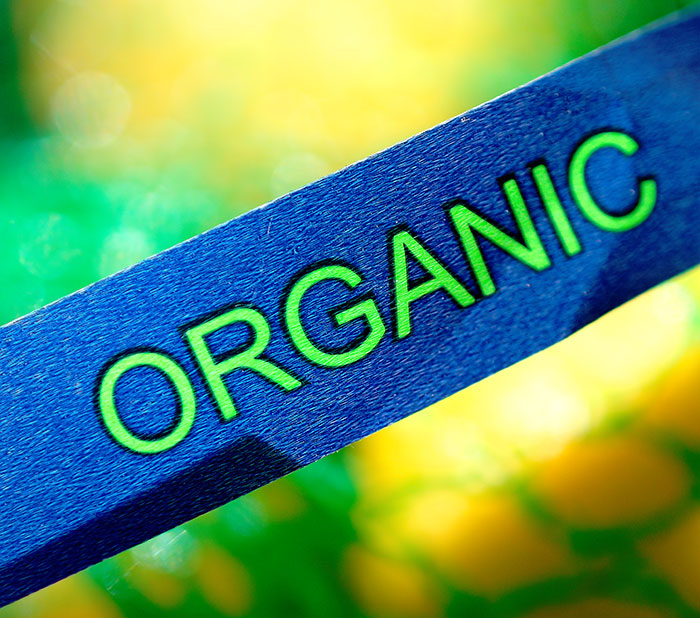 People believe that everything labelled ORGANIC IS ACTUALLY ORGANIC
People believe that everything labelled ORGANIC IS ACTUALLY ORGANIC
If it’s labeled certified organic, 95% is required to be organic (excluding water and salt).
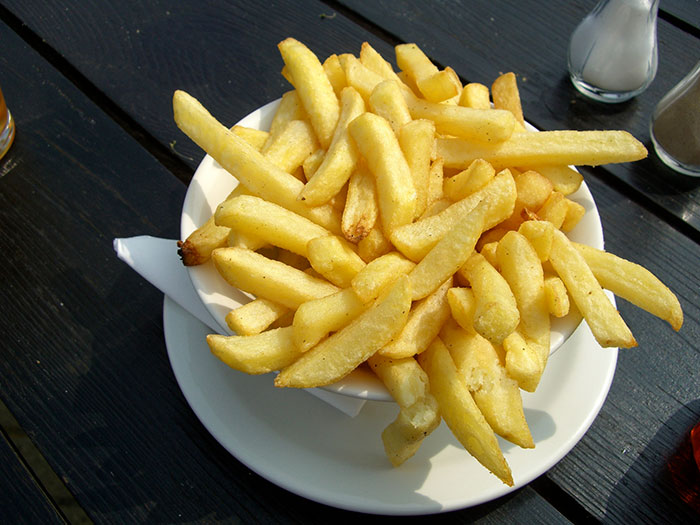 Carbs aren't evil unnatural things that trick your body into gaining weight. Food high in carbs is usually pretty tasty. Its a lot easier to eat a lot of something when its tasty.
Carbs aren't evil unnatural things that trick your body into gaining weight. Food high in carbs is usually pretty tasty. Its a lot easier to eat a lot of something when its tasty.
An 85g bag of potato crisps (chips in NorAmerica) equal about one whole potato. And the devil alone knows how much sodium.
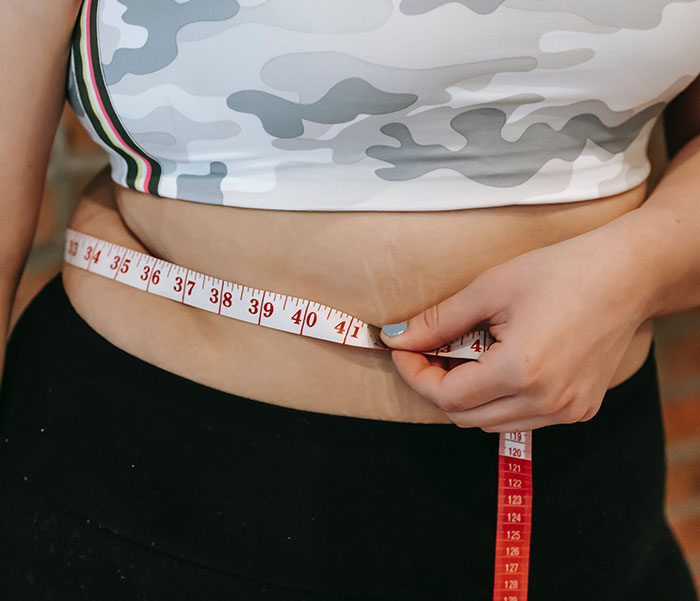 Starvation diets do not work in the long term. Yes, you will lose weight in the short-term but once you stop your starvation diet, you gain the weight back plus more. This is known as ''yo-yo' dieting.
Starvation diets do not work in the long term. Yes, you will lose weight in the short-term but once you stop your starvation diet, you gain the weight back plus more. This is known as ''yo-yo' dieting.
The word 'diet' does not mean eating to lose weight, rather it means what you eat as a habit. For example, the SAD (Standard American Diet) is a diet which one wants to avoid.
Reading through these replies may change your perspective about commonly held (yet false!) food beliefs, as well as remind you to always fact-check questionable facts and emerging diet trends to stay well-informed. But if you still feel like nutrition is wrapped in multiple confusions, Zalnieraite highlighted several red flags for misleading information everyone should be aware of:
- Recommendations that promise a quick fix.
- Dire warnings of danger from a single product or regimen.
- Claims that sound too good to be true.
- Simplistic conclusions drawn from a complex study.
- Recommendations based on a single study.
- Dramatic statements that are refuted by reputable scientific organizations.
- "Spinning" information from another product to match the producer’s claims.
- Stating that research is "currently underway," indicating that there is no current research.
- Unusual diets and eating patterns that promote short-term weight loss, with no concern for long-term weight maintenance or overall health.
Never, **NEVER** just blindly believe diet/supplement advice coming from someone trying to **SELL YOU SOMETHING.** (supplements, books, videos, diet plans, etc)
If someone make a claim, try to third party verify it, preferably from an actual doctor, dietician, medical association etc. if possible check for scholarly articles/studies. Don’t just read reviews or anecdotes provided by the **PEOPLE TRYING TO SELL YOU S**T.**
Also I’d avoid anything and everything that shows a before and after pic.
Edit to add: in Canada we have 811 nurse hotline. You can ask for a dietician and get some genera advise and questions answered.
“It’s okay to leave salsa on the table all day, after all, no bacteria would be able to survive in something so hot”. WRONG! The heat sensation from spicy foods is something that mammals feel, not birds, not reptiles, and probably not bacteria either. Other living things would not think it “hot”, it just falsely tricks our brain into sensing pain, which we interpret as spice.
 Eating after 7 PM will make you gain weight.
Eating after 7 PM will make you gain weight.
Moreover, she advised to be on the lookout for health fraud and misdirected health claims:
- Health Fraud is similar to food fads and fad diets. Health fraud includes products or diets that have no scientific basis, yet are still promoted for good health and well-being. Common examples include promises of "fast, quick, and easy weight loss," or a "miracle, cure-all product."
- Misdirected Health Claims that lead consumers to believe a food is healthier than actually the case. Examples include foods that are low in fat or low in carbohydrates, yet still high in calories.
We hope these tips will help you become better at navigating the rocky waters of nutrition. Did any of the food myths stand out to you? Or maybe you encountered some questionable legends yourself but are unsure if they're true? Share your thoughts with us in the comments, we'd love to hear them!
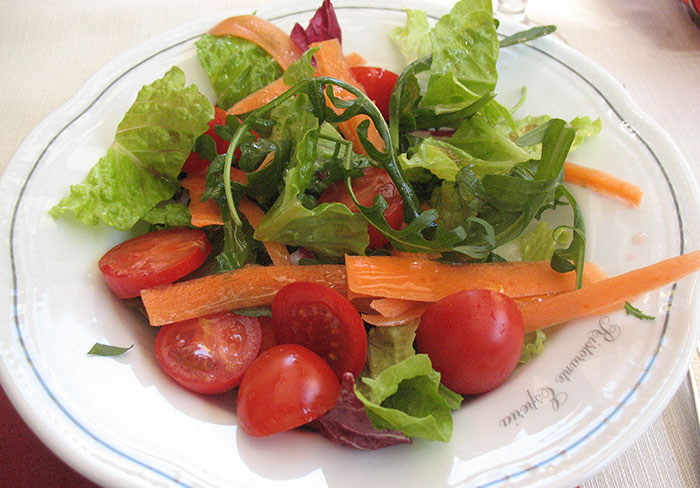 NO DIET can cure illnesses based on genetic defects - because no diet can repair genes
NO DIET can cure illnesses based on genetic defects - because no diet can repair genes
the medical diets do remove some serious symptoms, but the error and the damage is still there, it just does not go much worse.....
do not fall for the frauds with - miracle diet that cured influencer XY of their terrible disease -
there is a whole snake oil branch of business with these diets....they do not work!
yes, this is true even for such a - stupid - illness like acne.....acne means your broken genes tell your skin to go crazy with oil production, and no diet can fix this skin-maddness!
having acne due to food allergy or at least histamine intolerance is pretty rare!
I have heard a billion times that my diabetes type 2 can be cured with the right diet. The truth is that a good diet help to keep it in check, some have even managed to get rid of the symptoms. But the diabetes will allways be there, lurking and waiting for you to let the diet slip.
*If something consistently upsets your stomach, you're allergic to it.*
You may have a food intolerance, but a not true food allergy. Even a tiny amount of the allergy-causing food can trigger signs and symptoms such as digestive problems, hives or swollen airways. In some people, a food allergy can cause severe symptoms or even a life-threatening reaction known as anaphylaxis.
[Source](https://www.mayoclinic.org/diseases-conditions/food-allergy/symptoms-causes/syc-20355095)
 Dietitian here.
Dietitian here.
That sugar feeds cancer cells. Sugar (carbohydrates) feed ALL your cells. In fact, it's the main source of energy for your entire body. Avoiding entire food groups is going to do nothing but make you malnourished when you already have a disease that increases your body's energy needs which is going to result in worse outcomes. For the love of God, please just eat! Anything and everything that sounds good.
Vitamins aren't necessarily good for you. Obviously they are, but not in just any form. A lot of supplements have forms that your body can't effectively process, others have so much that it can be an issue if your body tries to process all of it (think B supplement superdosing). They're also not heavily FDA regulated, so pretty much as long as your claims are not too insane and there's at least some of what you say is in the bottle, that can go on the shelf. Get a recommendation from a professional, don't just grab one and be like "oh, this one says vitamin D, cool!"
 Agrarian here. Had "Food Science" among my classes.
Agrarian here. Had "Food Science" among my classes.
The "2000 calories" recommendation isn't a universal indicator. It assumes you're an adult with an active lifestyle: a job five days a week, walking, doing chores daily, and exercising on the weekend. It's a lifestyle that maintains your metabolism high and functional.
If you live a sedentary lifestyle, your metabolism goes down, reducing your body's ability to take energy from stored fats. Your muscles lose mass, reducing your calorie intake need as well (muscles require more calories than fat to maintain). So if you're sedentary, your actual calorie deficit can be much lower than 1900 calories. This also leads your brain to develop the habit of replenishing lost energy with immediate food intake rather than taking it from your fat storage, which means you get hungrier when you're tired (the reason why exercise makes you feel like starving when you're a beginner). It's a vicious cycle.
Also, water poisoning is a thing. Don't drink if you're not thirsty.
Water poisoning IS a thing, yes. But not drinking because you aren’t THIRSTY isn’t correct. By the time your body declares it’s thirsty, it’s already somewhat dehydrated. You don’t need to chug it. Also, you can get around 20% of your daily hydration just by eating foods high in water content: lettuce, watermelon, cucumber, etc. Watching sodium is another good thing. Watch the color of your pee, it tells you a lot.
Re-heating spinach is toxic.
It has been told for a long time that you shouldn't eat too much nitrate rich foods, and especially not re-heat them.
However, these statements didn't hold after research, but it's still a believe under many ppl.
 Eight glasses of water a day is the magic number.
Eight glasses of water a day is the magic number.
If I had a dime for every time someone has told me my medical problems were due to ' not enough water' or any symptom I had would be better if I 'just drank more water. Have you had water today??' Literally, I had a STROKE and my SO asked me later if I had consumed enough water that day. If he ends up a victim in some weird crime- it's because I didn't drink enough water
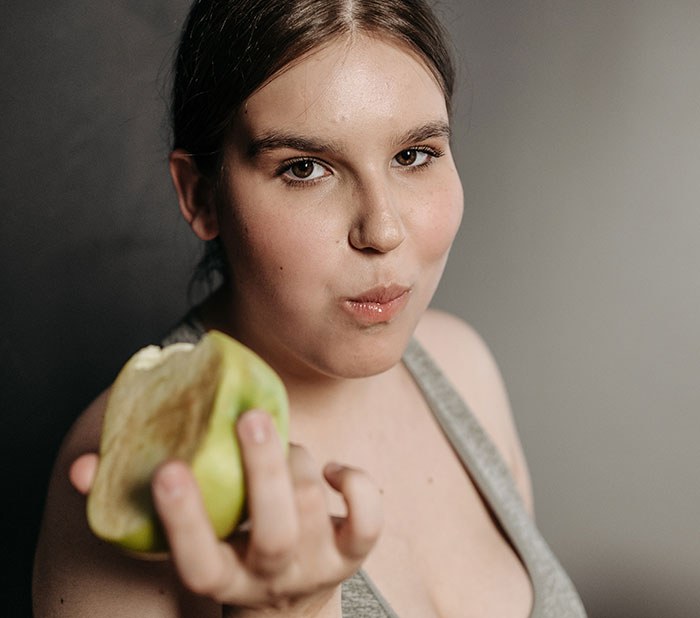 There are people who actually believe if you eat fruit after a meal, it will ferment in your belly and cause health issues.
There are people who actually believe if you eat fruit after a meal, it will ferment in your belly and cause health issues.
So I’m not working with food or anything like that but I’ve heard this before
Some people think that because they’re allergic to bees that they’re 100% allergic to honey. It’s not necessarily true at all.
Cheese does not give you nightmares.
I think one of the most pernicious ideas spread by the diet "industry" is that everything is about losing weight - just the period where you are reducing. But what people really want is to *change* their weight, the one weight they have all the time (plus or minus a bit) more or less for life. That is different and much harder.
The reason different diets take off in popularity and why one set of people will die on the hill of their diet when it worked for them and another group will feel the same way about their regimen that uses the opposite plan is because it is actually relatively easy to lose weight. But once one idea has been popular for a while, people start to gain back the weight, and it loses luster until another generation picks it up later.
Changing your eating regimen, focusing on food and what you are eating for every meal of the day (whether it's counting calories, macros, carbs, grams, food groups, whatever), and increasing your activity will always allow for weight loss. Do it more strictly/intensely, and you will lose even more weight.
The trick isn't to lose a certain amount of weight, it's to change how much you weigh for the foreseeable future. That is the hard part and what most "diets" cannot offer.
Carrots help you see in the dark!!!
It was false info passed around in WW2 to hide the fact they had radar.
Any "diet" is superior over another. And that fats are bad.
Ground turkey and chicken are always better for you than ground beef.
Unlike whole cuts of meat such as chicken breast or steak, ground meat is more likely to harbor foodborne illnesses. “Ground meat is more susceptible to foodborne illness for several reasons. First, ground beef is made from the meat of multiple cows mixed together, so one lot of contaminated meat can potentially contaminate many pounds of ground meat,” Wright said. “Second, when meat is ground up, more of its surface area is exposed to air, which increases the likelihood of it coming into contact with a potentially harmful bacteria,” she added. “For this reason, we always recommend consumers thoroughly cook ground meat and avoid rare burgers.”
One myth I hear all the time is that the less ingredients something has, the healthier it is for you.
Well, that's a "mistranslation" of "you shouldn't eat stuff with hundreds of added things you don't even know the names of". Of course, you can throw dozens of different ingredients into your cook pot, but if the list of ingredients of a frozen meal is longer than a click bait article, it's probably not very healthy.
 Laying down after you eat will make the food you ate digest slower.
Laying down after you eat will make the food you ate digest slower.
I don't know where to begin:
1. Carbs are fattening/you have to cut carbs to lose weight.
2. Eating animal products causes cardiovascular disease and cancer.
3. Artificial sweeteners cause cancer.
4. There are specific diets that are superior to others.
5. You can't eat at night/before bed or you're going to get fat.
6. Breakfast is a must have meal.
7. You can't eat any "unhealthy" food while dieting because you'll ruin your diet.
8. Food supplements are always good and can't harm you, they're beneficial all the time.
And many more things that people believe and will believe for a long time ahead because the "fitness" industry is BS and anyone can post "dietitian" content and be just a person that goes to the gym and once read an article of how good blueberries are.
Another useless article :( got to number 2 and gave up! Just eat diverse food and please stop analysing everything so much! Of course that fast food is unhealthy, even if it's vegan... No one eats a fried veggie burger because of the health benefits, but because they don't wan't to eat meat, and nowadays plant substitutes are pretty delicious! Can we please just eat whatever we want without constantly being judged?
Another useless article :( got to number 2 and gave up! Just eat diverse food and please stop analysing everything so much! Of course that fast food is unhealthy, even if it's vegan... No one eats a fried veggie burger because of the health benefits, but because they don't wan't to eat meat, and nowadays plant substitutes are pretty delicious! Can we please just eat whatever we want without constantly being judged?

 Dark Mode
Dark Mode 

 No fees, cancel anytime
No fees, cancel anytime 



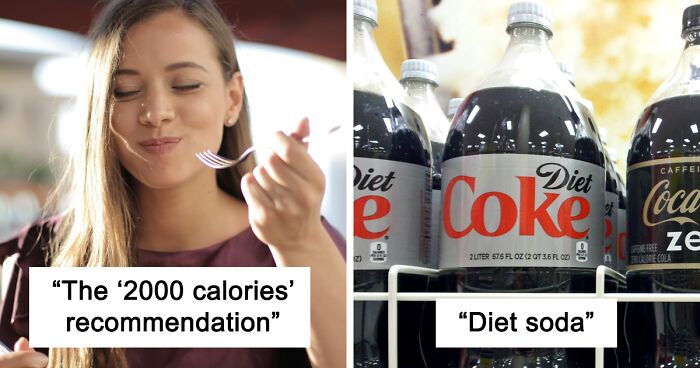

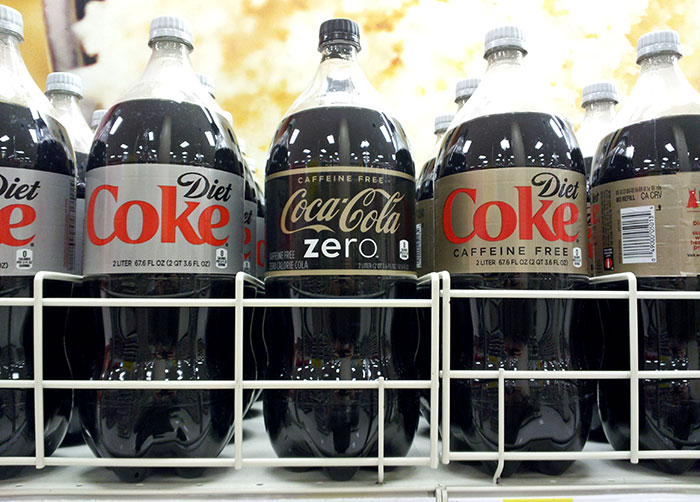
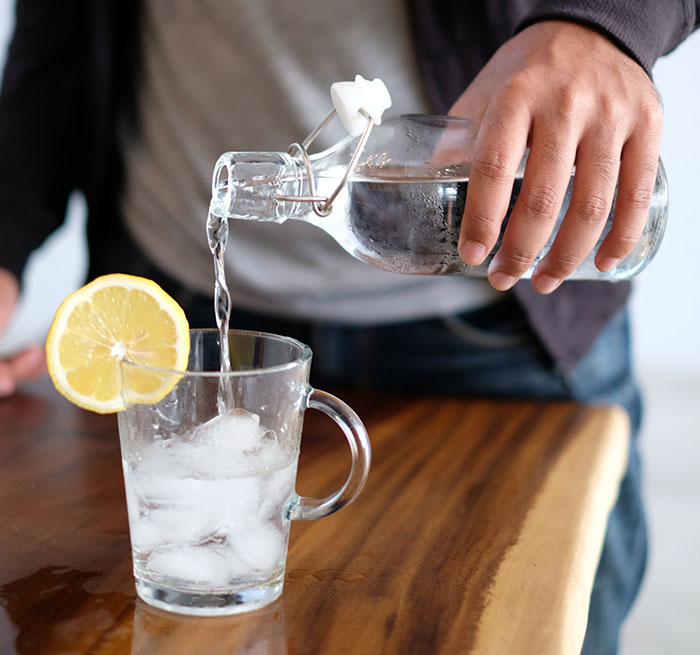






























 Get Bored Panda Premium
Get Bored Panda Premium  Watch Advertisement
Watch Advertisement 






















